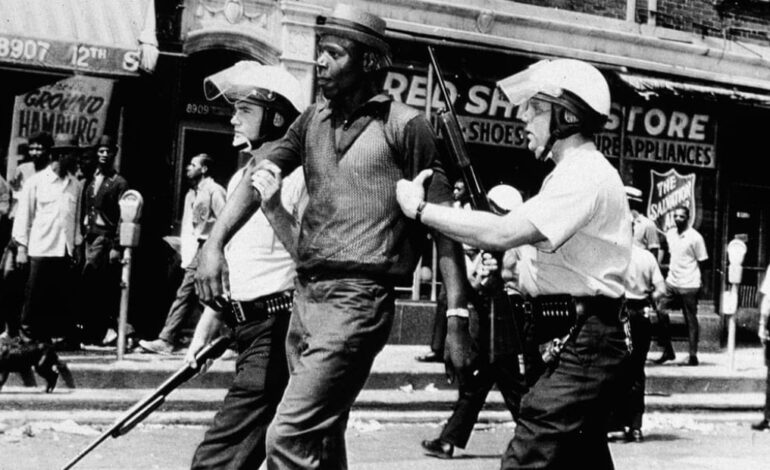
Avellon Williams
TRINIDAD AND TOBAGO – Black History Month is a month of celebration and remembrance of the achievements and contributions of African – Americans to our society.
It is a time to remember the events that have shaped our history and those who have made it possible for us to enjoy our current state of freedom. It is also a time to reflect on how far Black people have come from, from slavery to sanctioned segregation, from injustices and discrimination.
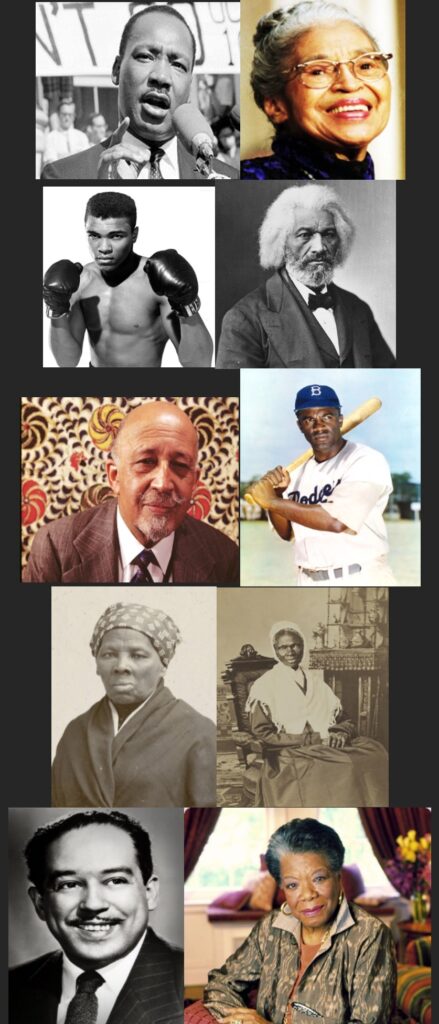
It was during this time African-Americans were treated as less than human beings and were not given an opportunity to become successful or achieve anything more than what whites were able to achieve.
The primary festival of Black History Month occurred in 1926 when historian, educator, and publisher, Carter G. Woodson started “Negro History Week,” to mark an occasion that would create “teach people about black achievements.”
However, in 1976, the name was changed to Black History Month by the United States Congress.
It is vital to understand how different eras of African-American history shaped the future of America and its culture. Contributions from inventors to athletes, lawyers to organizers, from scholars to ministers; African-Americans have literally changed the world and made it a better place for everyone.
It isn’t just about celebrating the past but a celebration and a look at how far the community has come, socially, economically, and politically.
Black history is a daily recognition of black contributions, but we choose the month of February to collectively dive more deeply and remember where we have come from and to refocus on what we aspire for.
These 10 most influential African-Americans are just a sampling from many more that made an indelible mark on the world in their own way.
1. Dr. Martin Luther King, Jr. (Civil Rights Activist )
Dr. King [1929 – 1968] is the most famous Civil Rights leader of the twentieth century. A federal holiday on the third Monday each January celebrates his legacy. Entire sections of textbooks are devoted to his civil rights activism in the 1950s and 1960s.
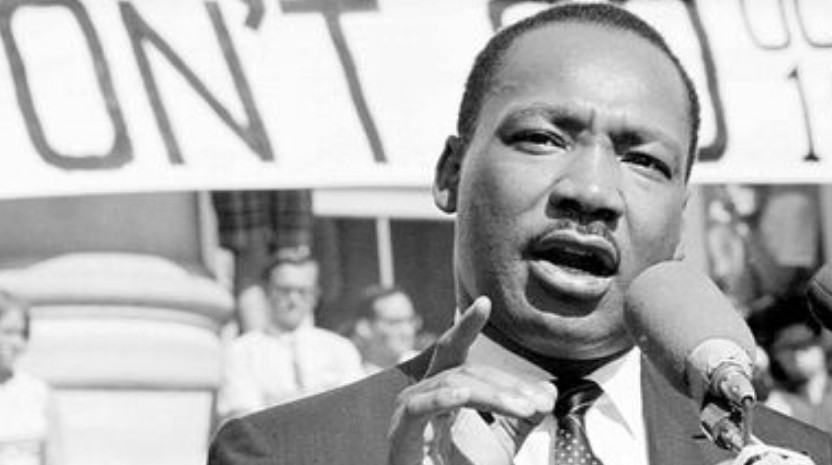
Dr. King made his mark by preaching non-violence as a means of protesting segregation in the United States. MLK’s assassination at the hands of a white man in 1968 sparked riots and mourning across the world.
2. Rosa Parks (Civil Rights Activist) [1913 – 2005]
She flat out refused to move to the back of a bus after being demanded she give up her seat to a white person. A rather quiet, reserved lady spanned the Civil Rights Movement with her actions. She was tired of putting up with indignities.
Mrs. Rosa Parks is labeled as the “Mother of the Freedom Movement” following her bold act of disobedience to unrighteous, inculcated segregation norms.
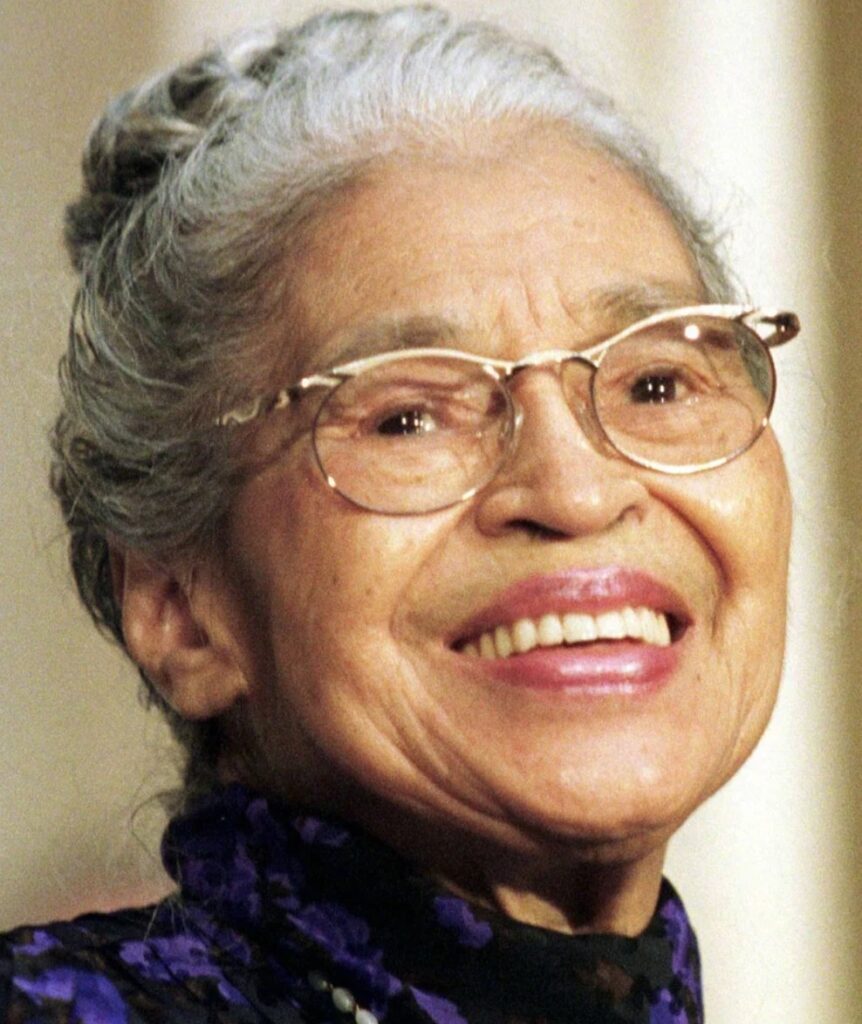
3. Muhammad Ali (Sports Figure) [1942 – 2016]
Born Cassius Clay in 1942, Muhammad Ali made his name in the sport of boxing as one of the greatest heavyweight champions of all time.
He changed his name in the early 1960s from “Cassius Clay,” which he associated with slavery, and adopted a new one from the Islamic tradition that symbolized a new black separatist movement in the United States at the time.
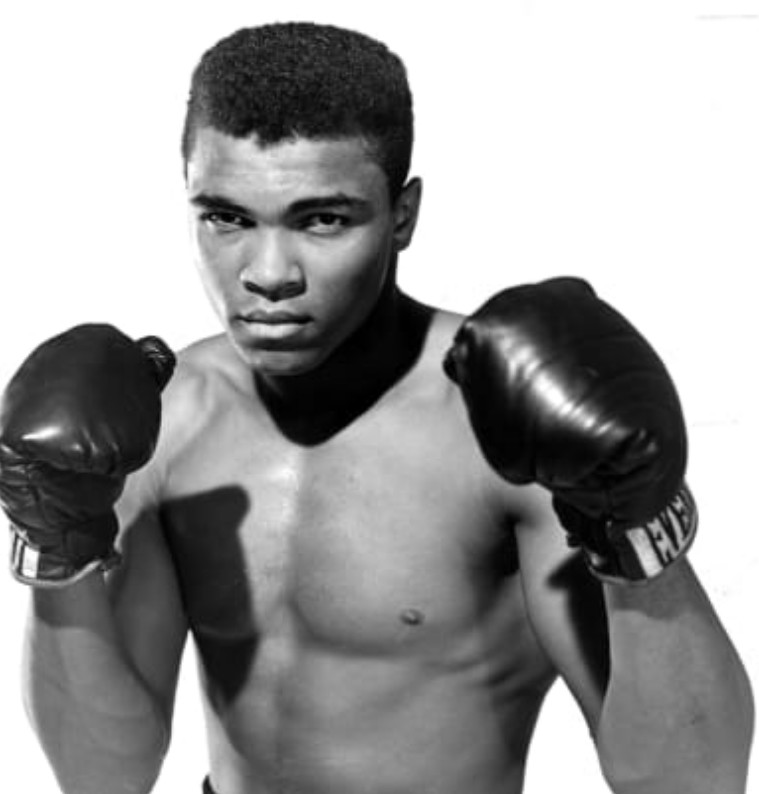
Ali was an objector to the Vietnam War, which moved him into the realm of left-wing activism that intersected race with a larger counter-culture movement of the 1960s.
4. Frederick Douglass (Abolitionist) [1818 -1895]
In Frederick Douglass’ autobiography, Narrative of the Life of Frederick Douglass, an American Slave, he outlines his life and subsequent escape from slavery, which proved instrumental to the abolitionist movement and the ultimate goal of ending slavery.
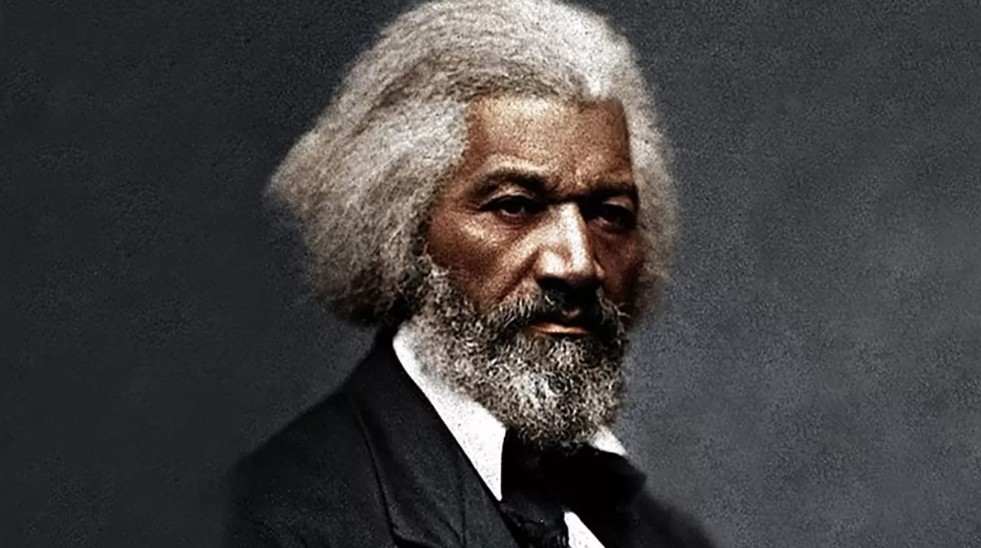
He became a national leader of the abolitionist movement in Massachusetts and New York, becoming famous for his oratory and incisive antislavery writings. (Wikipedia)
5. W.E.B. Du Bois (Scholar and Writer)
W.E.B. Du Bois [1868 -1963] made his name as an author, academic, and activist in the generation before Rosa Parks and MLK.
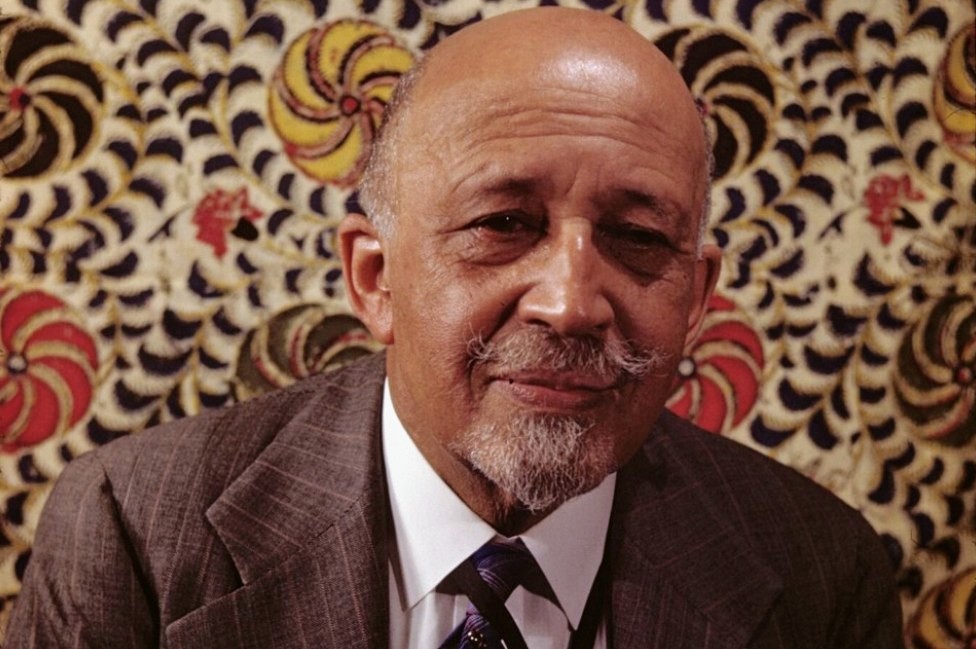
He is one of the founders of the National Association for the Advancement of Colored People (NAACP), which remains one of the premier organizations for minority rights and activism in the US.
A sociologist, Du Bois began to document the oppression of Black people and fight for equality in the 1890s. In 1903 he stated in The Souls of Black Folk –
“the problem of the twentieth century is the problem of the color line,”
W.E.B. Du Bois
He spent the remainder of his long life trying to break down racial barriers.
6. Jackie Robinson (Sports Figure) [1919 -1972]
Like Ali in the 60s, Jackie Robinson was one of the most influential sports figures of his day. His legacy is still being felt today. Sports as we know them are a collective experience of all people regardless of ethnicities, nationalities, race etc. Robinson is the major reason for that.
Robinson became the first African-American to play for a Major League Baseball (MLB) team, the Brooklyn Dodgers, which broke the league’s color barrier.
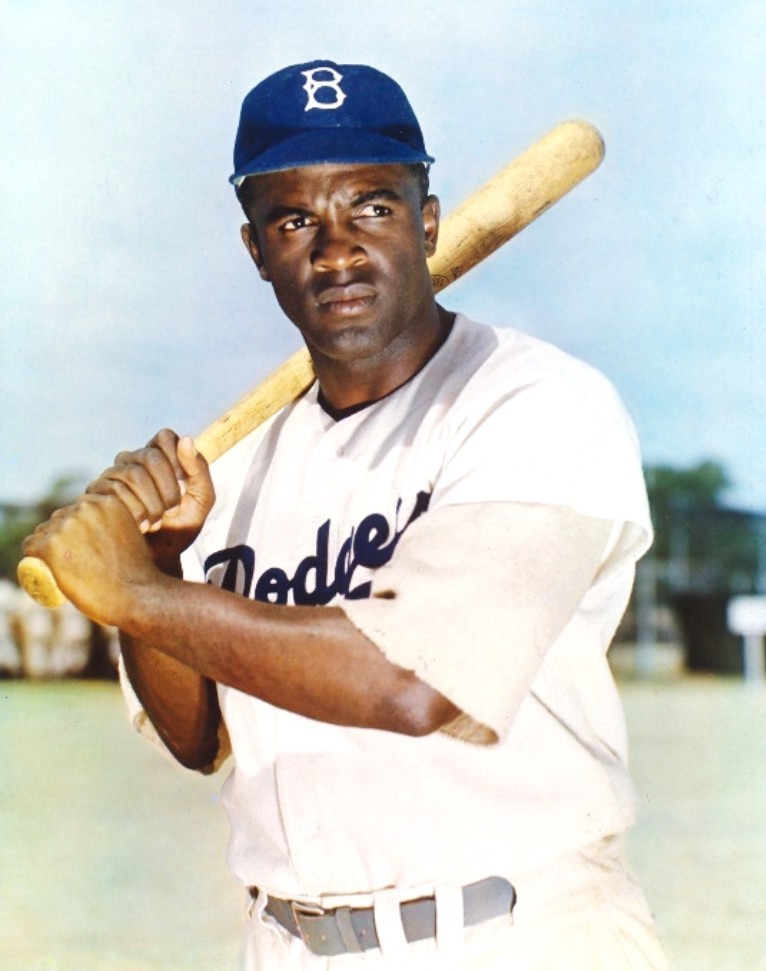
Robinson’s career spanned a decade. His jersey number, 42, was “retired” by all MLB teams, meaning no player may ever use that number again, in 1997.
7. Harriet Tubman (Leading Abolitionist) [1822 -1913]
Born into slavery, Harriet Tubman was famous for her efforts to help escaped slaves after escaping herself in 1849.
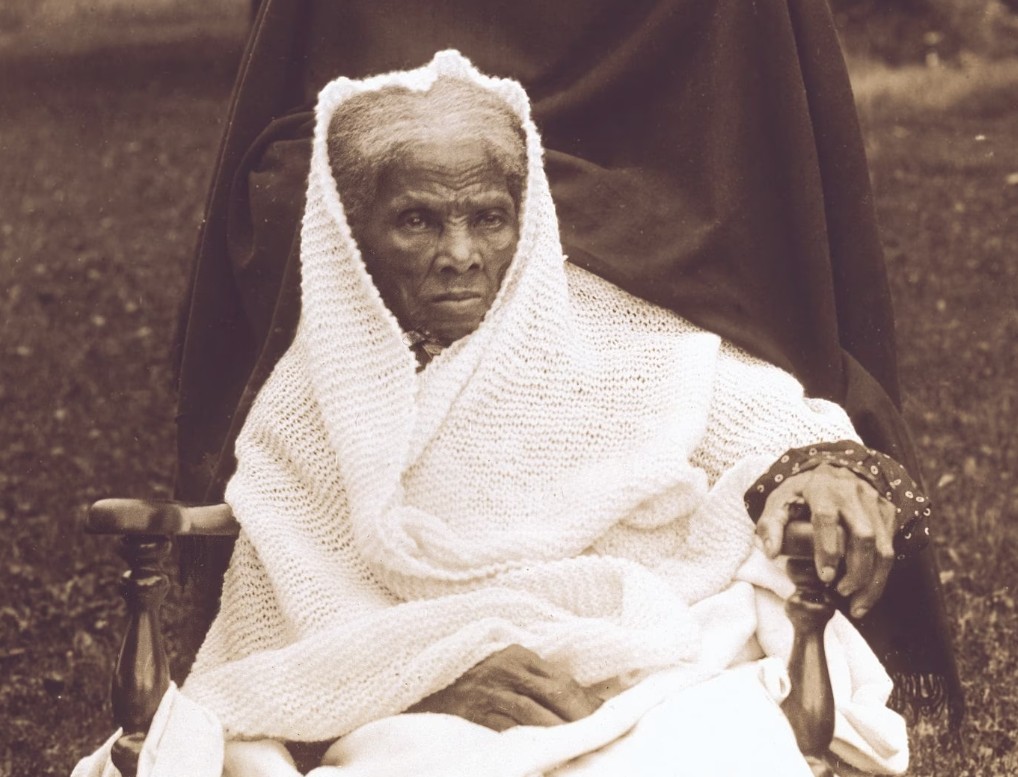
/Library of Congress/
She served an important part of the “Underground Railroad,” a secret path, a network of antislavery activists and safe houses through slave-holding states for runaway slaves to escape to the north to freedom. Mrs.Tubman was also referred to as “Moses”. She will be the first woman to be on a US dollar bill 💵, the $20, replacing President Andrew Jackson.
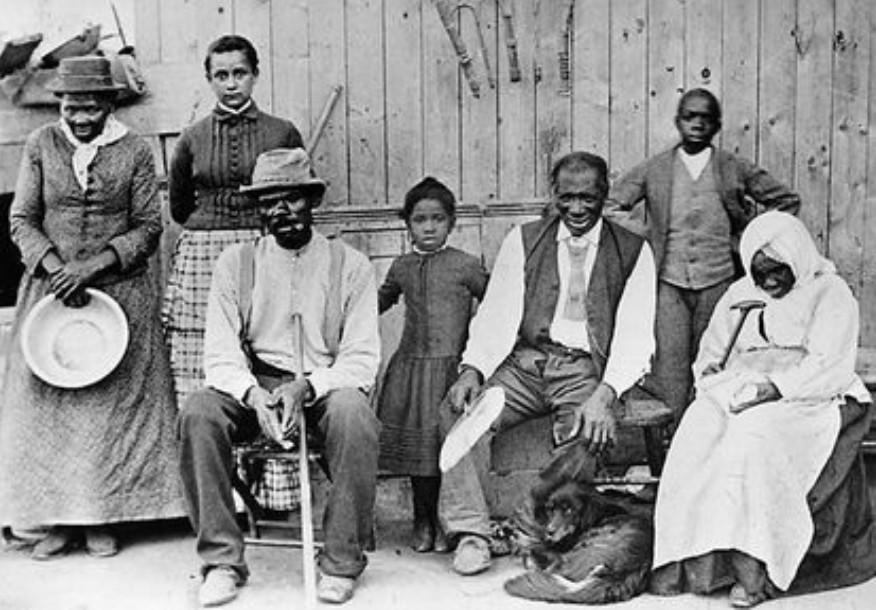
8. Sojourner Truth (Abolitionist / Women’s Rights Leader)
Sojourner Truth [1797 – 1883] was born into slavery, like Douglass and Tubman, and later escaped to become an abolitionist and activist for women’s rights.
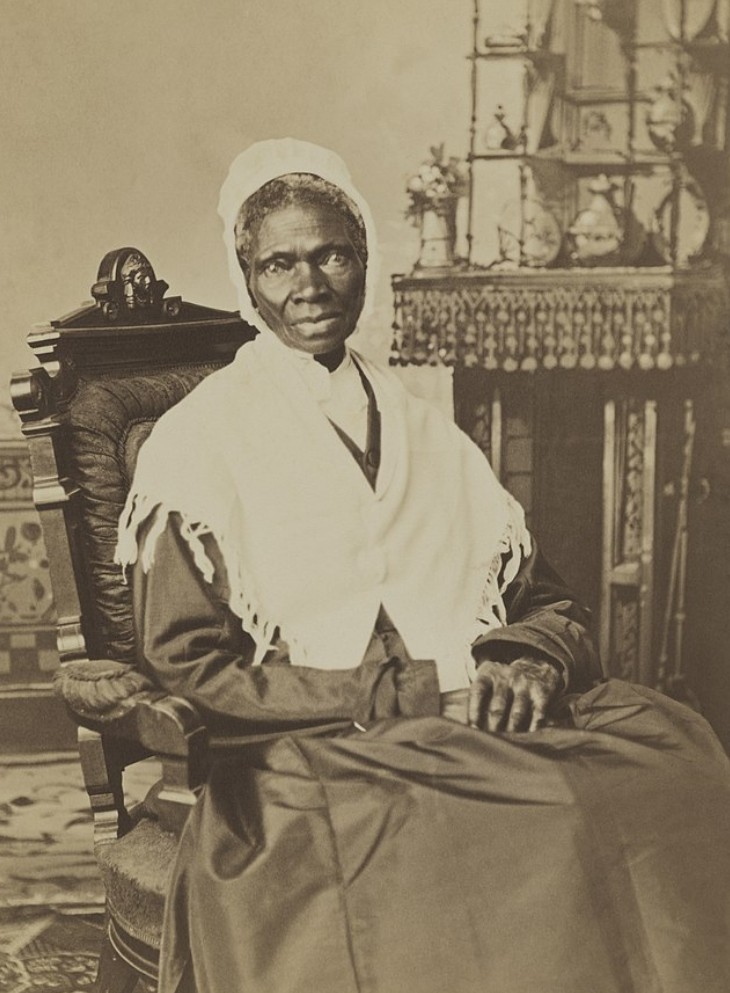
She was a pioneer for women suffrage movement which finally culminated with The 19th Amendment to the U.S. Constitution granting American women the right to vote.
Religion was a focal point of Truth’s efforts. She played a major part in recruiting African-American soldiers to fight for the Union (northern states) against the Confederacy (southern states) in the Civil War.
9. Langston Hughes (Poet/ Novelist)
Langston Hughes [1901 – 1967] was a poet and a novelist during the Harlem Renaissance – the intellectual and cultural revival of African American music, dance, art, fashion, literature, theater, politics and scholarship centered in Harlem, Manhattan, New York City, spanning the 1920s and 1930s.
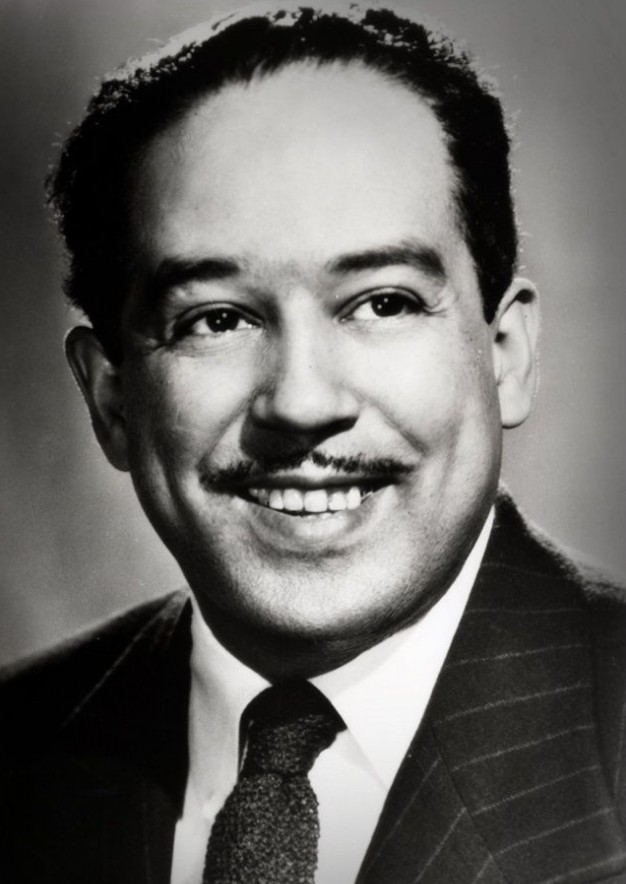
Hughes’ first book of poetry, The Weary Blues, and subsequent works helped outline the economic situation of lower-class African-Americans.
10. Maya Angelou (Author) [1928 – 2014]
One of the best-known African-American authors, Maya Angelou’s autobiography, I Know Why The Caged Bird Sings, tells a coming-of-age tale that shows how racism affected a young girl, transforming her into the proud author she would later become.
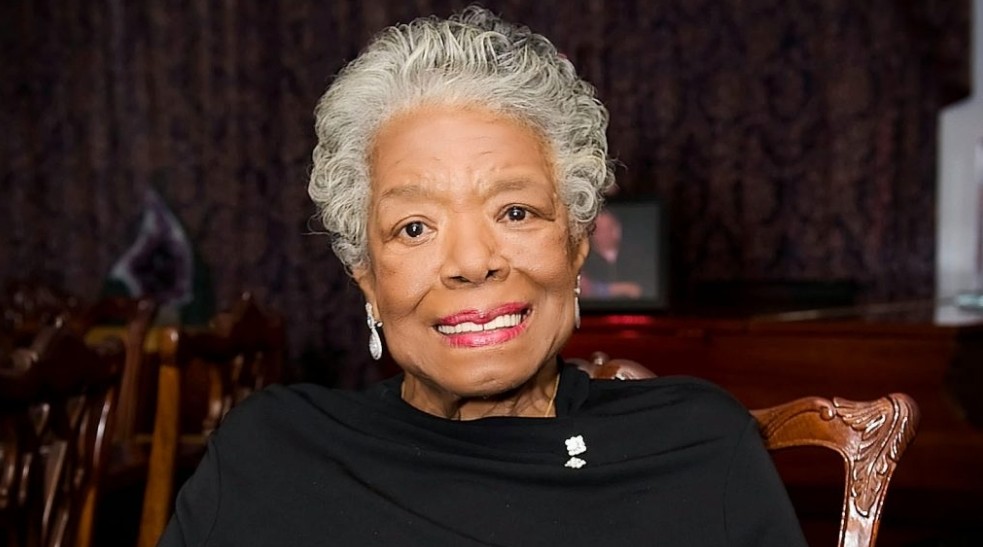
Angelou worked with MLK and other civil rights leaders to put a permanent end to segregation – the sanctioned action or state by a government to preferences of one or some group(s) of people over another/ others.





Recent Comments